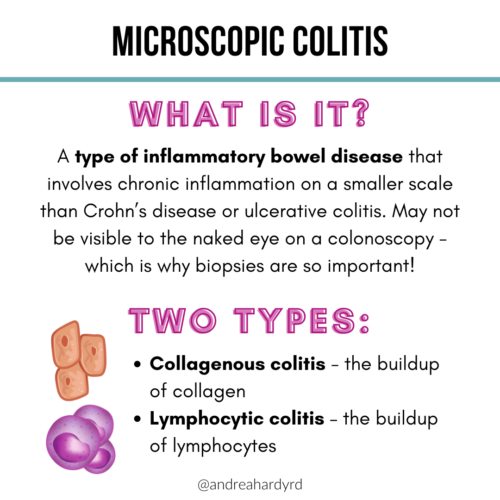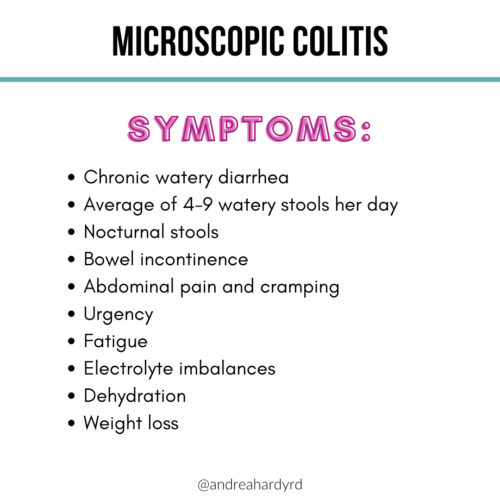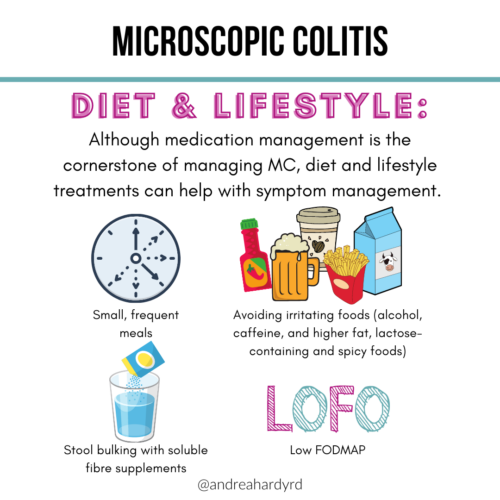In my practice as a gut health dietitian I see patients with microscopic colitis. On Instagram @AndreaHardyRD, I talk all about microscopic colitis – what it is, the symptoms and how to manage it!
Have you heard of Microscopic colitis (MC)? 🧐
Once thought to be quite rare – we are finding it more and more often as a cause of chronic diarrhea.
It’s essentially a type of inflammatory bowel disease that involves chronic inflammation on a smaller scale than Crohn’s disease or ulcerative colitis. It might not even be visible to the naked eye on a colonoscopy- which is why biopsies are so important!
There are two types of MC:
1️⃣ Collagenous colitis – the buildup of collagen
2️⃣ Lymphocytic colitis – the buildup of lymphocytes
Both result in inflammation and reduce the capacity for the colon to reabsorb fluid and electrolytes.
Symptoms of MC include:
– Chronic watery diarrhea
– Average of 4-9 watery stools her day
– Nocturnal stools
– Bowel incontinence
– Abdominal pain and cramping
– Urgency
– Fatigue
– Electrolyte imbalances
– Dehydration
– Weight loss
While diet is not a cure for MC, it can help with symptom management. We don’t have a ton of research on MC and nutrition – yet we know from experience with malabsorptive diarrhea, certain food-based strategies CAN help.
This includes:
– Small, frequent meals
– Stool bulking with soluble fibre supplements
– Reducing caffeine intake
– Reducing alcohol intake
– Avoiding lactose-containing foods
– Avoiding spicy foods
– Avoiding higher fat or deep-fried foods
– Low FODMAP diet
Medication management is the cornerstone of managing MC. Patients often do get flare ups, where they might need more medication management, and have periods of remission where they might not.
Have you heard of microscopic colitis before or know someone who has been diagnosed with it? We have a great blog post on @ignite.nutrition.inc – link in bio!




Recent Comments